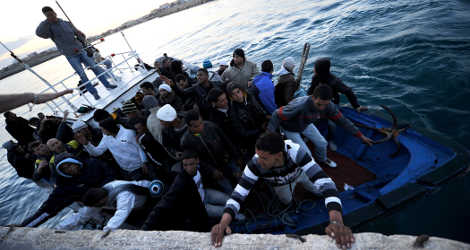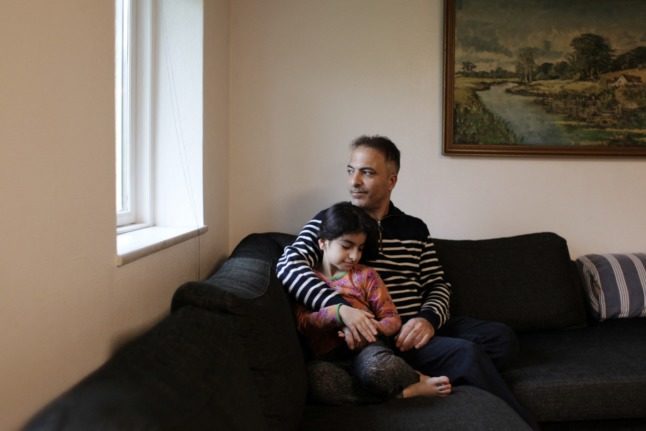The woman was one of 355 refugees – most of them from Syria – on two boats intercepted by coast guard and navy vessels and escorted to Sicily on Wednesday.
"We found her with a piece of the umbilical cord still attached," Luca Sancilio, the local coast guard commander in Syracuse told news channel SkyTG24.
Sancilio initially said the woman had given birth to a little girl, although the hospital where they were taken later said the baby was in fact a boy.
The coast guard estimated the baby was about four days old and was born during the eight-day voyage.
Mother and son are well and resting, the hospital said.
A coast guard plane on Tuesday spotted the heavily overcrowded boat that the woman was travelling on.
The people on board included 48 children.
Mario de Rosa, captain of a navy patrol boat that came to the rescue, told SkyTG24 that the refugee boat suffered engine failure in stormy seas.
A second boat with 164 people on board was spotted by a fishing vessel some 15 nautical miles from the coast and was also taken to Syracuse.
Several of the refugees were suffering from dehydration, Italian media reported.
Another boat carrying 107 Syrian refugees landed in Sicily on Tuesday, getting stuck on rocks just off the shore.
Three Egyptian crew members from that boat have been arrested on charges of aiding illegal immigration.
Thousands of asylum-seekers have landed in Sicily in recent weeks, many of them coming from Egypt and Syria.
"There are now more Syrians than anyone else. This is a really dramatic exodus," Sancilio said.
The interior ministry said 2,872 Syrians have landed in Italy so far this year.
Also on Wednesday, a boat with 115 migrants presumably arriving from Libya was rescued by the Maltese military and taken to the Mediterranean island state.
The boat was intercepted some 90 nautical miles south of Malta, and the crew said they were in distress as their dinghy had started taking on water.
This was the second group to arrive on Malta this week after the navy on Tuesday rescued another group of 81 migrants, most of them apparently from Eritrea.



 Please whitelist us to continue reading.
Please whitelist us to continue reading.
Member comments